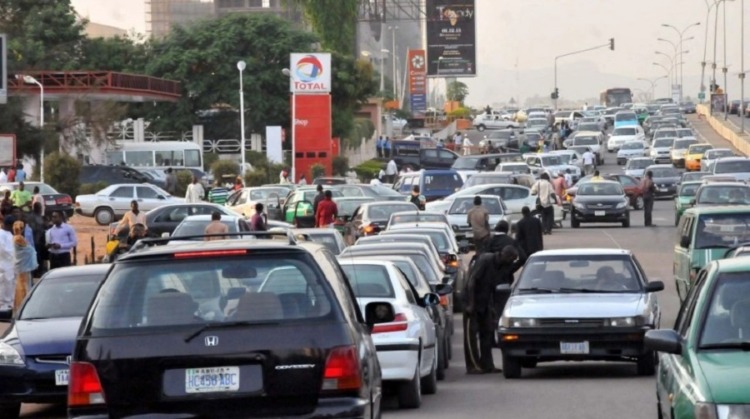Fuel Scarcity Hits Abuja And Five Other States, Commuters Stranded
 Commuters in the Federal Capital Territory and five other states faced severe transportation hurdles on Wednesday as a sudden scarcity of Premium Motor Spirit (PMS), commonly known as petrol, led to the closure of many filling stations and sky-high transport fares.
Commuters in the Federal Capital Territory and five other states faced severe transportation hurdles on Wednesday as a sudden scarcity of Premium Motor Spirit (PMS), commonly known as petrol, led to the closure of many filling stations and sky-high transport fares.
Thousands of commuters in the Federal Capital Territory, Nasarawa, Niger, Gombe, Sokoto, and Anambra states were left stranded at bus stops, grappling with the scarcity of petrol needed by transporters to run their vehicles.
The scarcity has triggered an alarming hike in transport fares across the affected states.
According to Punch, many commuters reported drastic increases in costs as the few transporters with petrol available took advantage of the situation.
Numerous filling stations closed due to a notable shortage in the supply of PMS to these regions.
This issue compounded the woes of motorists and businesses alike, resulting in long queues at the few operational stations, particularly those near the Nigerian National Petroleum Company Limited (NNPC) headquarters in Abuja.
“Massive queues disrupted traffic in the Central Business District as desperate motorists converged on the Conoil and Total filling stations in front of NNPC’s headquarters,” said a commuter caught in the Wednesday rush.
In response to the escalating situation, oil marketers have scheduled a crucial meeting with the management of the retail subsidiary of NNPC to address the cause of the shortages and discuss potential solutions.
According to Chief John Kekeocha, National Secretary of the Independent Petroleum Marketers Association of Nigeria (IPMAN), “There’s a clear supply shortage in Abuja and neighbouring states. This shortage is why many stations are unable to dispense petrol, leading to the severe queues at the few that do.”
Amidst the crisis, there’s a glimmer of hope as industry leaders anticipate the commencement of operations at the Dangote Petroleum Refinery, which is expected to alleviate the fuel scarcity.
“Once the refinery starts pumping petrol to the domestic market, we expect these issues to be resolved,” stated Abubakar Maigandi, National President of IPMAN.
Furthermore, the Port Harcourt Refining Company is also projected to begin producing refined petroleum products soon, adding another potential solution to the ongoing fuel challenges.













